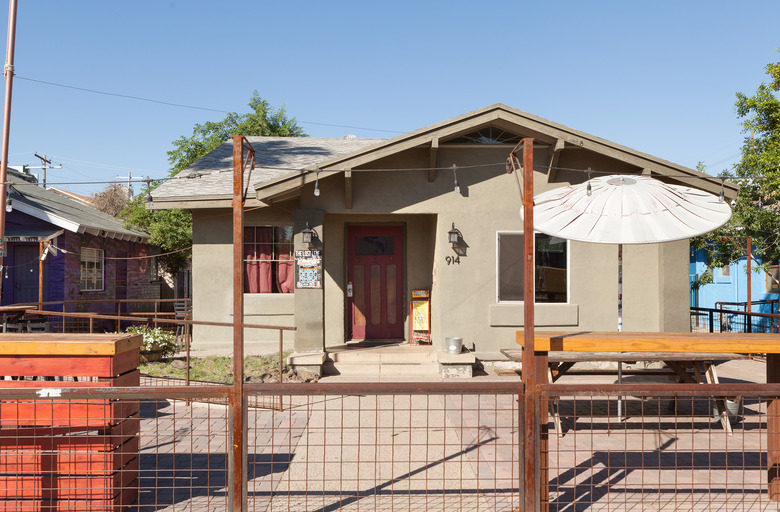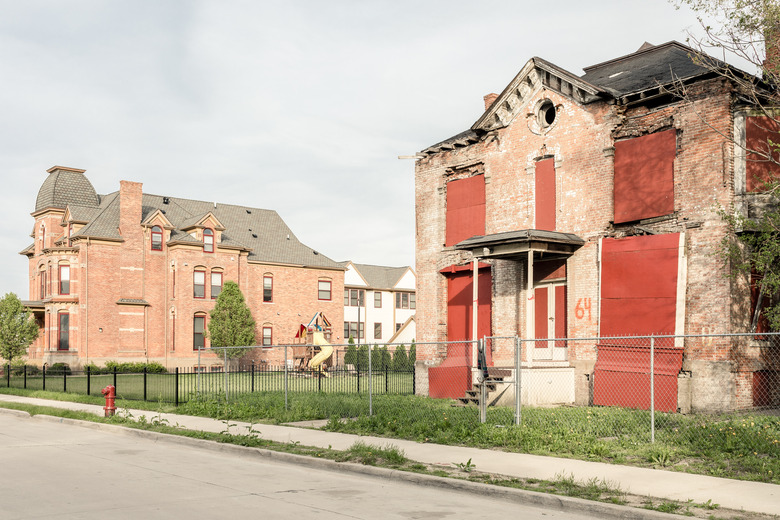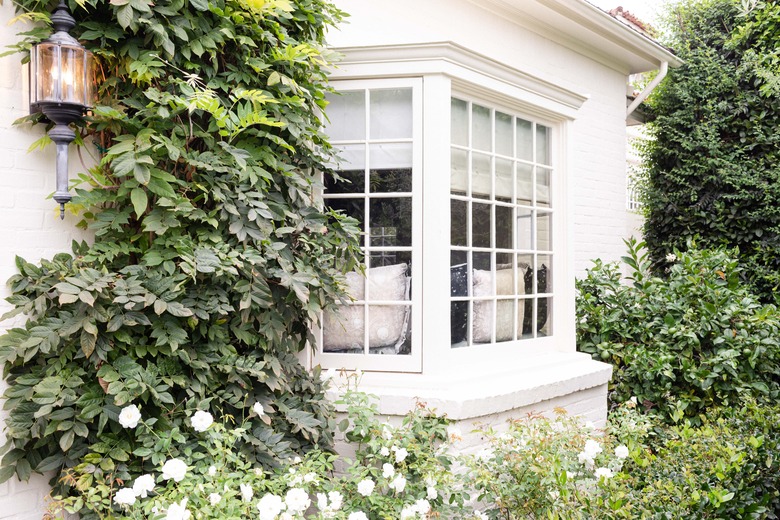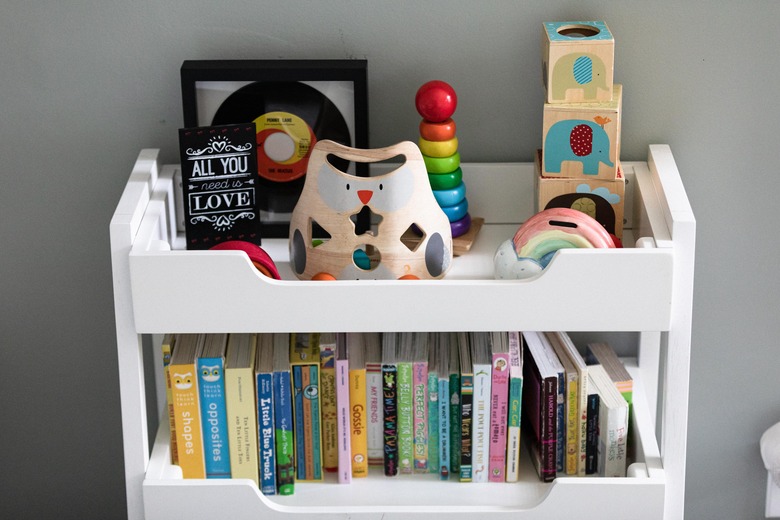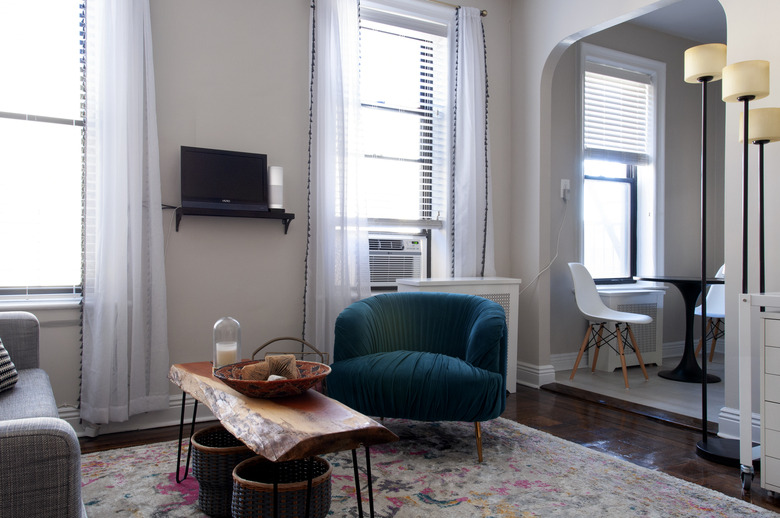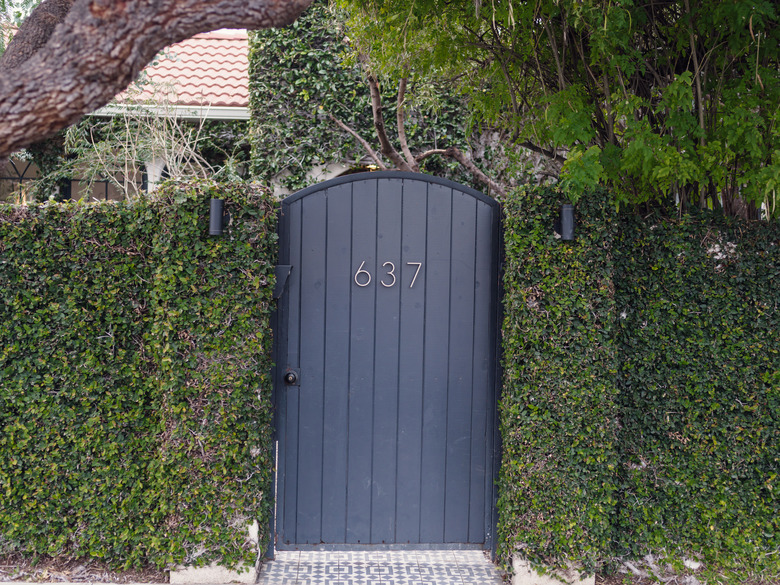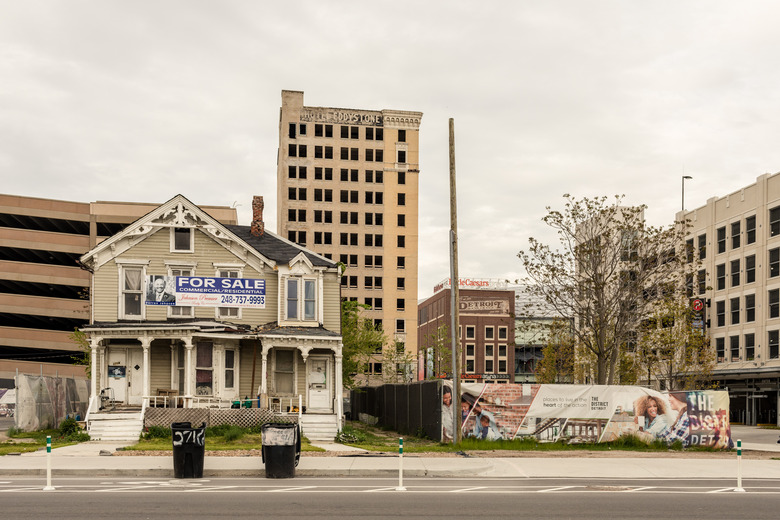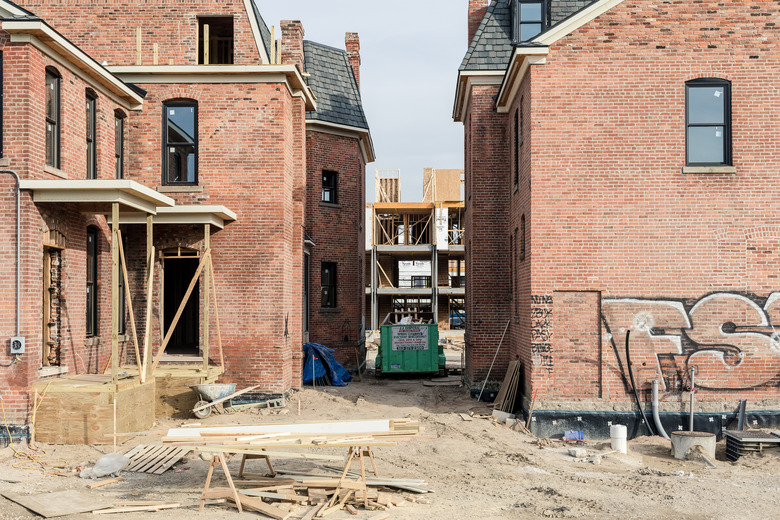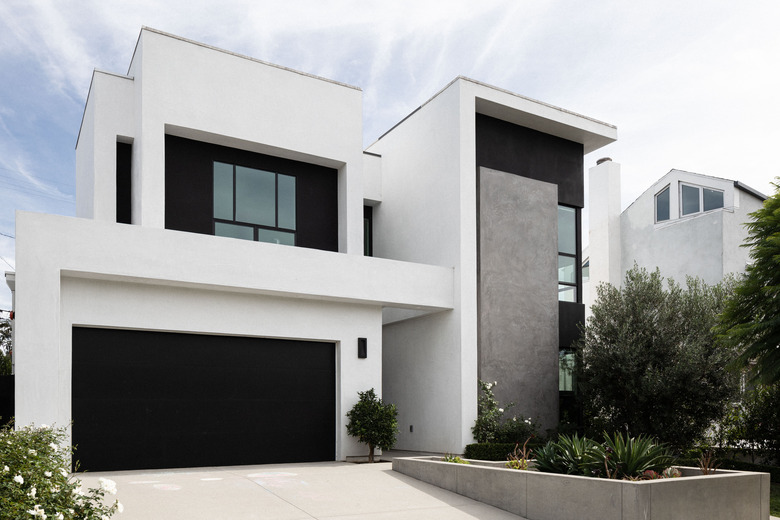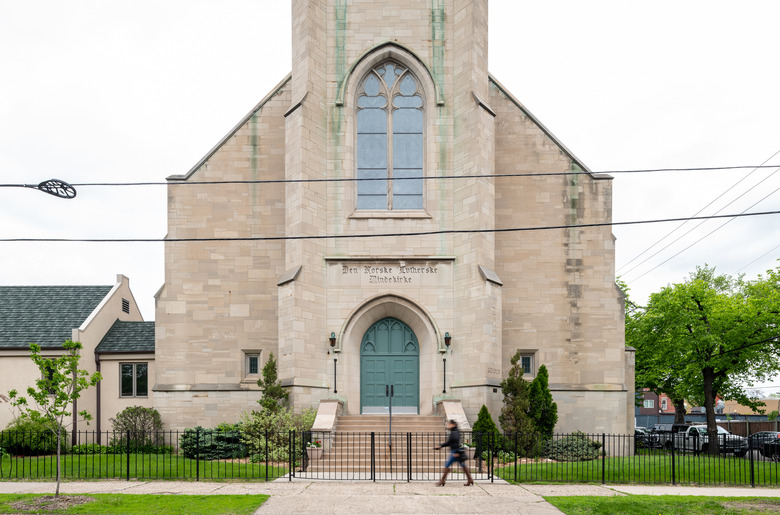15 Key Neighborhood Factors That Affect Home Value
When it comes to purchasing a home, every single detail matters. And it's not just the interior and exterior of your home that can affect its value — it's also the surrounding neighborhood. Yes, factors outside of your control can unfortunately influence if potential buyers want to pay for your home. To understand exactly what these unexpected factors are and whether they might make your home price increase or decrease, we reached out to real estate experts.
Here are a few surprising factors that could affect how much your home is worth:
1. Bad Neighbors
1. Bad Neighbors
Sadly, this one is out of your control.
"One unexpected thing that I recently encountered on one of my flips was an aggressive and threatening next door neighbor," Ryan Substad, a real estate investor and the owner of Northwest Property Solutions, tells Hunker. "This was something that affected the sale price of the house as there were some encounters with the neighbor and potential buyers of the house that resulted in buyers deciding not to submit an offer on the house."
Your neighbors' hobbies and affiliations can also have a negative effect. Even the breed of their dog can drive down the price of a home. For instance, Robyn Flint, an insurance specialist at HomeInsuranceRates.com, tells Hunker, "Having a neighbor who breeds hunting dogs [can] create a noisy environment, which may turn away able buyers." The same goes for other breeds that are likely to howl, like Alaskan Malamutes and Siberian Huskies, and breeds that are seen as dangerous (sadly, pit bulls are often feared and misunderstood).
2. The Condition of Your Neighbors’ Homes
2. The Condition of Your Neighbors' Homes
It's not just bad neighbors who can affect your home price — it's also neighbors who have trouble maintaining their home. "The condition of the homes surrounding yours can negatively impact your home sale," Flint explains. "Neighbors who have a junkyard on their property can drive down the value of your property." This can also apply to neighbors who don't mow their lawn; neighbors who are hoarders; neighbors that have abandoned homes; and even those who have controversial political signs posted on their property.
Daniela Andreevska, marketing director at real estate data company Mashvisor, tells Hunker that a "high rate of foreclosures, short sales, and bank-owned homes (a high percentage of homeowners losing their homes to the bank or other lenders) is a sure sign that there is something wrong with this neighborhood." So yes, your neighbors' financial situations can end up affecting your own.
3. School District Reputation
3. School District Reputation
Having a school or university in your neighborhood might not be enough — it all depends on the quality of that school. Beatrice de Jong, a top LA realtor and the consumer trends expert at Opendoor, tells Hunker that a school district with a good reputation can easily make your home more desirable to families who want their kids to have a top notch education that's close to home.
4. High-Traffic Areas
4. High-Traffic Areas
Tampa, Florida real estate agent Nadia Anac explains that if your home faces a busy street or intersection, that can affect its price. This is especially the case if you live in an urban area where traffic is heavy — or if you live near a hospital or firehouse.
5. Grocery Stores and Gentrification
5. Grocery Stores and Gentrification
"Living near a trendy grocery store like Trader Joe's or Whole Foods greatly increases the property value and brings in a huge group of buyers who may not have known about or considered your neighborhood before," De Jong says. The same goes for other popular establishments, like Starbucks and Walmart.
In other words: gentrification.
"As a neighborhood gentrifies, the value of homes in that neighborhood usually increases," Matthew McEwan, vice president of corporate development at real estate development firm Medallion Capital Group, tells Hunker. "For some time, the addition of a Starbucks and other higher end cafes has been a sign of gentrification taking place." He cites a Harvard Business School study that utilized Yelp data to find out that a new coffee shop can be a sign that gentrification is taking place, causing a .5% increase in housing prices within that same zip code.
6. Population Age
6. Population Age
Your neighbors' age can reveal a lot about local employment opportunities (or lack thereof). Patrick Frank, the head of sales at real estate startup Biproxi, tells Hunker that "studies have shown that younger people tend to move toward more metropolitan districts where jobs are located, and home values tend to be higher in these areas." On the contrary, rural areas that house a retired workforce tend to show lower home prices.
7. Numerology
7. Numerology
We all have our superstitions — especially when it comes to a purchase that's as significant as a home. De Jong states: "I've had buyers who wouldn't even consider a home with 4s in the address, and round the numbers on the offer price up or down to avoid 4s as well. Conversely, the number 8 is considered lucky and beloved by many home buyers." The number eight is in fact known as the luckiest number in Chinese culture.
8. Cemeteries
8. Cemeteries
Rhianna Miller, a home improvement expert with RubberMulch, tells Hunker, "[L]et's be honest, cemeteries, funeral homes, and shooting ranges all bring about a negative connotation." But according to a Zillow study, this could also swing the other way — it's all about personal preference. Seward Hall, Nashville, for example, boasts 15 cemeteries and "homes are generally $320,300 more than the typical Nashville-area home" while Acres Home, Texas has three graveyards and "the typical home there is $82,800 cheaper than one in the Houston metro."
And speaking of cemeteries ...
9. Ghost Stories
9. Ghost Stories
"People might not admit it, but no one wants to live in a haunted house," Connie Heintz, founder of DIYoffer, tells Hunker. "If there's a rumor that you have ghosts floating around the property, you're going to have a hard time selling it." Heintz also cites a 2017 realtor.com survey in which 40% of participants said they'd only consider buying a "haunted" house if it came at a discount.
Just like ghost stories, tragic tales can hugely impact the price of your home. Aqsa Tabassam, a marketing manager at UpFlip.com, tells Hunker that "if any unpleasant or tragic incidents happened in the neighborhood of your home, then it would deter the buyers to make a deal." This can be represented by the crime rate in your area, which might make potential buyers question their safety.
10. Places That Give Off Bad Smells
10. Places That Give Off Bad Smells
We're talking about homes near factories, waste treatment plants, and yes, even the town dump. Anac says that "some unexpected things that can affect home price include the home's proximity to factories that emit bad odors (or just being downwind from them!)."
Flint adds that "you may have the biggest house on the block, but if it is next door to a waste treatment plant, you may not get the price you want when it's time to sell."
11. Eyesores Like Power Lines, Cell Towers, and Billboards
11. Eyesores Like Power Lines, Cell Towers, and Billboards
"This is a huge problem in cities, but it applies to the suburbs as well," states Heintz. "If you live near a highway and you have a billboard in your backyard, you might have difficulty selling ... And if they are lit-up billboards, it'll drive your home price down even further."
The same goes for cell towers and excessive power lines, which some might consider eyesores. Think about it this way: If they can't Instagram their home, they might not want to buy it.
12. DIY Projects
12. DIY Projects
"If too many of your neighbors are supposedly improving the outside of their houses as well as their gardens, this might have a negative effect on home prices," Tabassam says. "These DIY projects might end up hurting the way the neighborhood looks rather than improving it." Sadly, we all know someone who has gotten in over their head on a Pinterest project.
13. Street Suffixes
13. Street Suffixes
"Research found that homes located on drives, lanes, avenues, and boulevards have a higher cost per square foot than homes on streets," Miller says. She adds that if your home is on Brook Landing Street instead of Brook Landing Avenue, you may see a lower home value. Here's a primer on the different names and categories.
14. Public Transportation Stops
14. Public Transportation Stops
It's not just the type of public transportation that can have an impact on your home — it's also the distance from your home. "It's good to find a bus stop or railway station near the house, but having train tracks in proximity of your home is altogether a different story," says Tabassam. "It subsequently decreases your home price." That's because of noise pollution and safety concerns — especially for small children who might not know how dangerous train tracks can be.
James McGrath, co-founder of the NYC real estate brokerage Yoreevo, adds that the exact location of a bus stop can make or break a home's price. "Being near bus routes is obviously a good thing, but you don't want to be right on top of them ... You don't want to hear buses idling and smelling their exhaust all day."
15. Places of Worship
15. Places of Worship
Depending on the buyer's religion, this can be either a pro or con. "A lot of buyers and sellers are surprised to learn that having a synagogue within walking distance of a home can dramatically increase the value of the property," explains PropertyClub CEO Andrew Weinberger. Having a place of worship within walking distance can be of great benefit to some buyers, but Heintz adds, "I recently learned that the presence of a megachurch can drive the price of housing way down. I guess that homebuyers don't want thousands of worshippers clogging up their streets on Sunday mornings."
